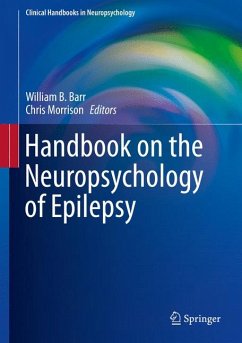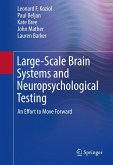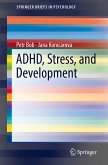Geared toward beginning as well as veteran clinicians, the Handbook on the Neuropsychology of Epilepsy offers readers a skills-based framework for assessment and treatment, using current evidence and standardized terminology. Expert coverage reviews widely-used methods for evaluating key aspects of patient functioning (MRI, MEG, electrocortical mapping, the Wada test), and presents guidelines for psychotherapeutic and cognitive remediation strategies in treating comorbid psychiatric conditions. Given the diversity of the patient population, additional chapters spotlight issues specific to subgroups including high- and low-functioning as well as geriatric and pediatric patients. This integrative hands-on approach benefits a range of practitioners across medical and neurological settings. Topics featured in the Handbook:
- Neuropsychological assessment across the lifespan.
- Evaluating the epilepsy surgical candidate: methods and procedures.
- The Wada test: current perspectives and applications.
- Assessing psychiatric and personality disorders in the epilepsy patient. Evaluation and management of psychogenic non-epileptic attacks.
- Neuropsychological assessment with culturally diverse patients.
Practical and flexible in its coverage, the Handbook on the Neuropsychology of Epilepsy serves not only neuropsychologists and neurologists but also primary care physicians such as internists, family physicians, and pediatricians.
Dieser Download kann aus rechtlichen Gründen nur mit Rechnungsadresse in A, B, BG, CY, CZ, D, DK, EW, E, FIN, F, GR, HR, H, IRL, I, LT, L, LR, M, NL, PL, P, R, S, SLO, SK ausgeliefert werden.
"This book covers the major aspects of epilepsy care from a neuropsychological perspective. ... This book is intended to provide much more specific guidance on special procedures and consideration in working with patients with epilepsy. The book is clearly meant for neuropsychologists, but it also aims to be appropriate for other medical professionals to help better understand neuropsychological procedures and better integrate them into epilepsy care." (Christopher J. Graver, Doody's Book Reviews, April, 2015)









